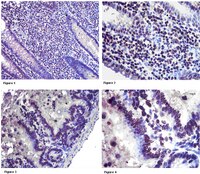AB6070 Anti-MT1-MMP Antibody, hemopexin domain
This Anti-MT1-MMP Antibody, hemopexin domain is validated for use in WB, IH(P) for the detection of MT1-MMP.
More>> This Anti-MT1-MMP Antibody, hemopexin domain is validated for use in WB, IH(P) for the detection of MT1-MMP. Less<<Recommended Products
Overview
| Replacement Information |
|---|
Key Spec Table
| Species Reactivity | Key Applications | Host | Format | Antibody Type |
|---|---|---|---|---|
| H, R, Eq, Chp, Rhesus Macaque | WB, IH(P) | Rb | Purified | Polyclonal Antibody |
| References |
|---|
| Physicochemical Information |
|---|
| Dimensions |
|---|
| Materials Information |
|---|
| Toxicological Information |
|---|
| Safety Information according to GHS |
|---|
| Safety Information |
|---|
| Storage and Shipping Information | |
|---|---|
| Storage Conditions | Stable for 1 year at 2-8°C from date of receipt. |
| Packaging Information | |
|---|---|
| Material Size | 50 µg |
| Transport Information |
|---|
| Supplemental Information |
|---|
| Specifications |
|---|
| Global Trade Item Number | |
|---|---|
| Catalogue Number | GTIN |
| AB6070 | 0 |
Documentation
Required Licenses
| Title |
|---|
| PRODUCTO REGULADO POR LA SECRETARÍA DE SALUD |
Anti-MT1-MMP Antibody, hemopexin domain SDS
| Title |
|---|
Anti-MT1-MMP Antibody, hemopexin domain Certificates of Analysis
| Title | Lot Number |
|---|---|
| Anti-MT1-MMP, hemopexin domain - NRG1889946 | NRG1889946 |
| Anti-MT1-MMP, hemopexin domain -2529373 | 2529373 |
| Anti-MT1-MMP, hemopexin domain -2576377 | 2576377 |
| Anti-MT1-MMP, hemopexin domain -2637130 | 2637130 |
| Anti-MT1-MMP, hemopexin domain -2887504 | 2887504 |








